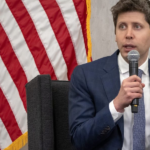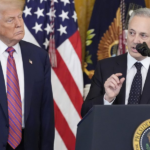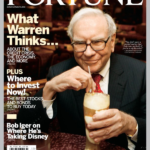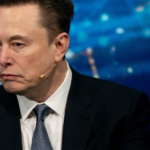Beijing believes a leader-level summit is necessary to steady U.S.-China relations and that Trump must be wooed because he has the final say on America’s policy toward China, despite more hawkish voices in his Cabinet, observers say.
The question, however, is when.
Danny Russel, a distinguished fellow at the Asia Society Policy Institute, said Trump has consistently shown his hunger for a visit to China and that Beijing has used that to bolster leverage.
“As soon as the leadership in Beijing is satisfied that Trump will be on his best behavior and will accept terms for a deal that they think are favorable, they will give a green light to the visit,” Russel said.
Sun Yun, director of the China program at the Washington-based think tank Stimson Center, said a visit “is in the making” with two sides likely to strike a trade deal.
What Trump said might mean the visit would not be in September but “potentially November, but still depends on whether they play ball on trade and other things we want,” Sun said.
Both sides also imposed on each other harsh trade restrictions on critical products: China on rare earths, and the U.S. on computing chips and jet engine technology.
“I think trade is in a very good place with China,” Bessent told host Maria Bartiromo. “Hopefully, we can see the Chinese pull back on some of this glut of manufacturing that they’re doing and concentrate on building a consumer economy.”
Beijing has not announced any travel plans for Vice Premier He Lifeng, who led trade negotiations in both Geneva and London on behalf of the Chinese government, but it is not unusual for China to make such announcements closer to a travel date.
In a possible friendly gesture, Beijing on Tuesday said it suspended an antitrust investigation into chemical maker DuPont’s operations in China. China’s State Administration for Market Regulation made the announcement in a one-line statement but gave no explanation for the decision.
Chinese regulators launched the investigation in April against DuPont China Group, a subsidiary of the chemical giant, as part of Beijing’s broad, retaliatory response to Trump’s sky-high tariffs.
Beijing also has agreed to approve export permits for rare earth elements and rare earth magnets that U.S. manufacturers need to build cars, robots, wind turbines and other high-tech products. The U.S. has eased restrictions on some advanced chips and other technologies.









